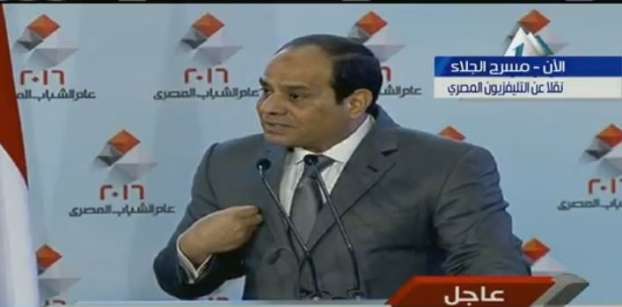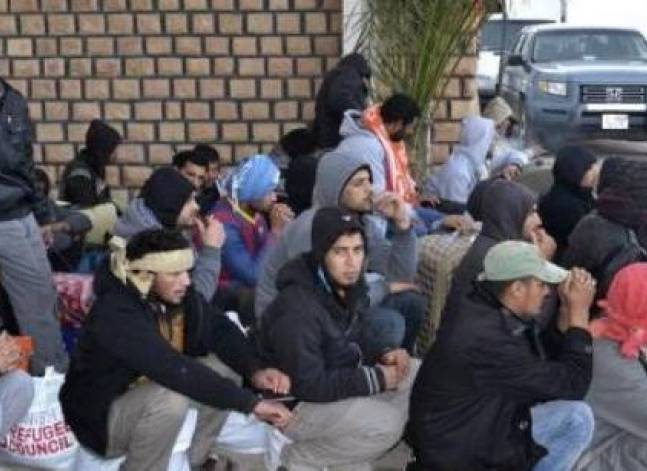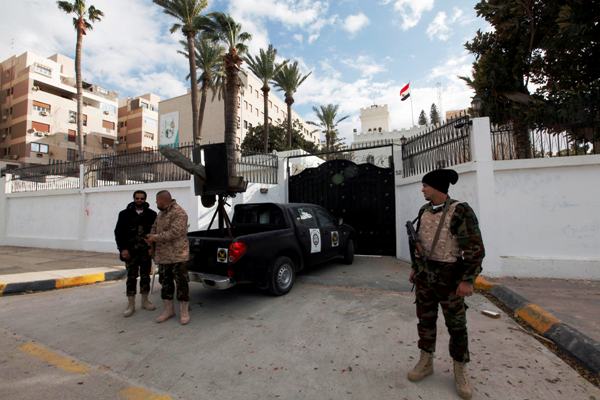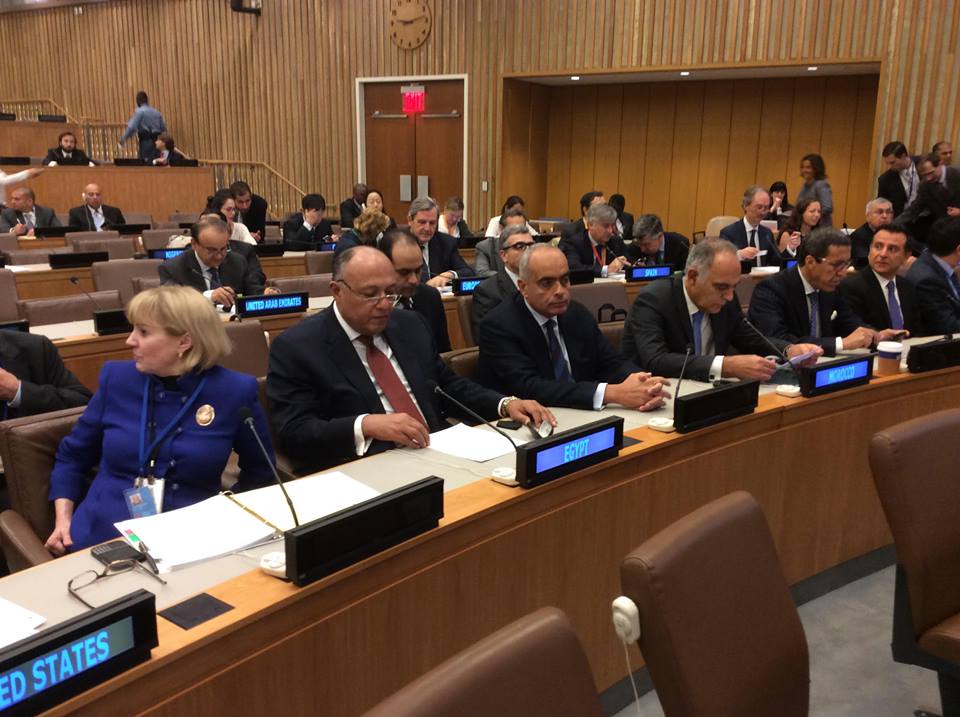Latest NEWS
- Aswat Masriya, the last word
- Roundup of Egypt's press headlines on March 15, 2017
- Roundup of Egypt's press headlines on March 14, 2017
- Former Egyptian President Hosni Mubarak to be released: lawyer
- Roundup of Egypt's press headlines on March 13, 2017
- Egypt's capital set to grow by half a million in 2017
- Egypt's wheat reserves to double with start of harvest -supply min
- Roundup of Egypt's press headlines on March 12, 2017
Egypt's Sisi says Libya intervention risky, supports eastern commander
Egyptian President Abdel Fattah Al-Sisi in a ceremony held in Cairo for the launch of the country's sustainable development strategy on 24 Feb. 2016 - Photo from CBC Extra channel
ROME (Reuters) - Military intervention in Libya is risky and foreign powers would be better off supporting a military commander based in the east, President Abdel Fattah al-Sisi of neighbouring Egypt was quoted as saying on Thursday.
A power struggle between two rival administrations in Libya has allowed Islamic State militants to gain ground there, and hardliners have held up efforts to set up a unity government.
Interviewed in the Italian newspaper La Repubblica, Sisi recommended supporting Khalifa Haftar's Libyan National Army - which is linked to the internationally recognised government based in the eastern city of Tobruk - in the fight against jihadists.
"If we give arms and support to the Libyan National Army, it can do the job much better than anyone else, better than any external intervention that would risk putting us in a situation that could get out of hand and provoke uncontrollable developments," he said.
Egypt was putting pressure on Tobruk to accept a United Nations-backed unity government, he said, and wanted all parties to take their share of responsibility.
Tobruk's administration has said it cannot vote on the unity government and the rival General National Congress in Tripoli has said it cannot hand over power.
Foreign powers can only intervene in Libya if asked to do so by a Libyan government and with a U.N. and Arab League mandate, Sisi said. The United States and European Union have said further intervention would need to be requested by Libya.
The world needs to act quickly to stabilise all countries in the region that have not yet fallen into chaos, the Egyptian leader added, to tackle threats to global security and manage the migrant crisis.
"What would happen if Europe had to manage a wave of refugees two or three times bigger than it is now?" he asked. "This is why I say we cannot focus only on the military problem in Libya."
Sisi said five questions needed to be asked before taking military action: how to get in and out of Libya, who would re-establish the police and army, how to protect civilians during a mission, whether an intervention would meet the needs of all Libyans and who would rebuild the country physically.
(Reporting by Isla Binnie; Editing by Tom Heneghan)














